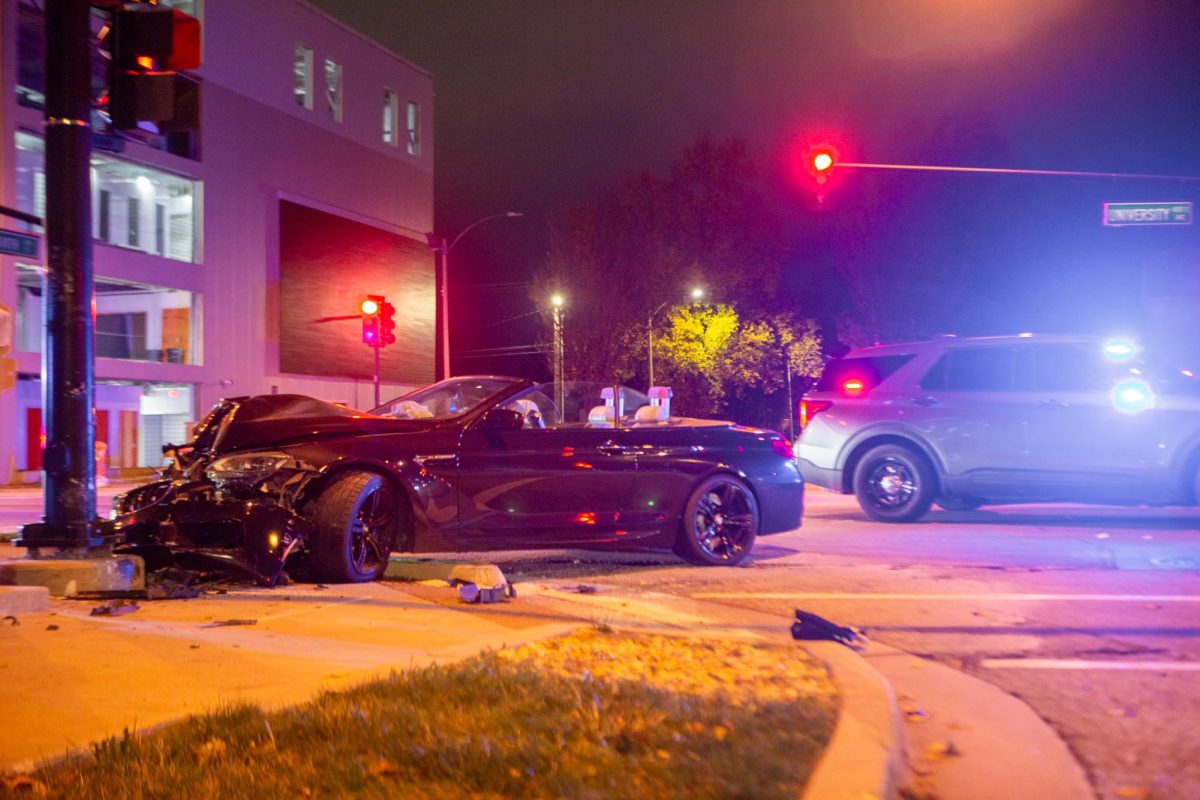Members of the Graduate Employees’ Organization (GEO) addressed their concerns regarding the changes being made to the tuition waiver policy in the College of Fine and Applied Arts (FAA) at a public forum held at the University YMCA on Monday evening. The meeting, which was open to the public, had over 150 people in attendance, including students, faculty, administration and University counsel.
Dean of FAA Robert Graves was also in attendance for the forum.
“I was invited and came to hear what their concerns were,” he said.
Peter Campbell, co-chair of the GEO stewards’ council, opened the meeting by first explaining the changes being made to the tuition waiver policy in FAA.
“Quite a few programs in FAA shifted away from full assistantships to base-rate tuition waivers,” he said. “Scholarships will be granted to incoming students for the current academic year.”
Get The Daily Illini in your inbox!
Campbell added that the change does not affect students already enrolled in those FAA programs in which waiver policies are being changed.
A video was shown from the November 2009 strike at the meeting with commentary from Kerry Pimblott, a member of the GEO grievance committee.
After the video, Pimblott said the GEO has fought hard to make sure the contract language protected tuition waivers.
“The administration lied to us,” Pimblott said. “Despite what they said, they want to take away tuition waivers. We will seek to get the waiver policy changes reversed.”
The meeting was then opened up for questions from the audience.
At one point during the open discussion period, an audience member asked Campbell where the scholarship money to cover the difference between in-state and out-of-state tuition would come from. Campbell responded that the scholarship money would come from the graduate college.
But Graves then responded that the scholarship money will not come from the graduate college, but instead from individual departments within FAA.
Graves did acknowledge that certain programs will have a cost differential of about $1000 even after the scholarships are applied.
Bill Sullivan, professor of landscape architecture, voiced his concerns over the new arrangement and said the changes would hurt him from recruiting the best graduate students.
“It’s going to cut my legs from right under me; it is also going to hurt my lab,” Sullivan said.
He added that he does not want to only recruit students that can afford to pay the difference.
Daniel Thomas, graduate student in FAA, said he would not be at the University without the full tuition waiver, and encouraged the audience to contact incoming students to warn them about the implications of the changes.
Kristen Ehrenberger, graduate student in History and Medicine, said she attended the meeting even though she is not being affected by the waiver changes, because she felt the GEO had to be strong in numbers against the University as an institution.
Toward the end of the meeting, Campbell outlined the GEO’s strategy to lobby the University to reverse their decision.
The GEO plans to encourage its members and the community to e-mail top University administrators with a template e-mail provided, through what he described as an “e-mail blast.”
There are also plans to contact donors to the Krannert Center for the Performing Arts through letters and in person about the changes.
“It should matter to those that support the arts,” Campbell said.






